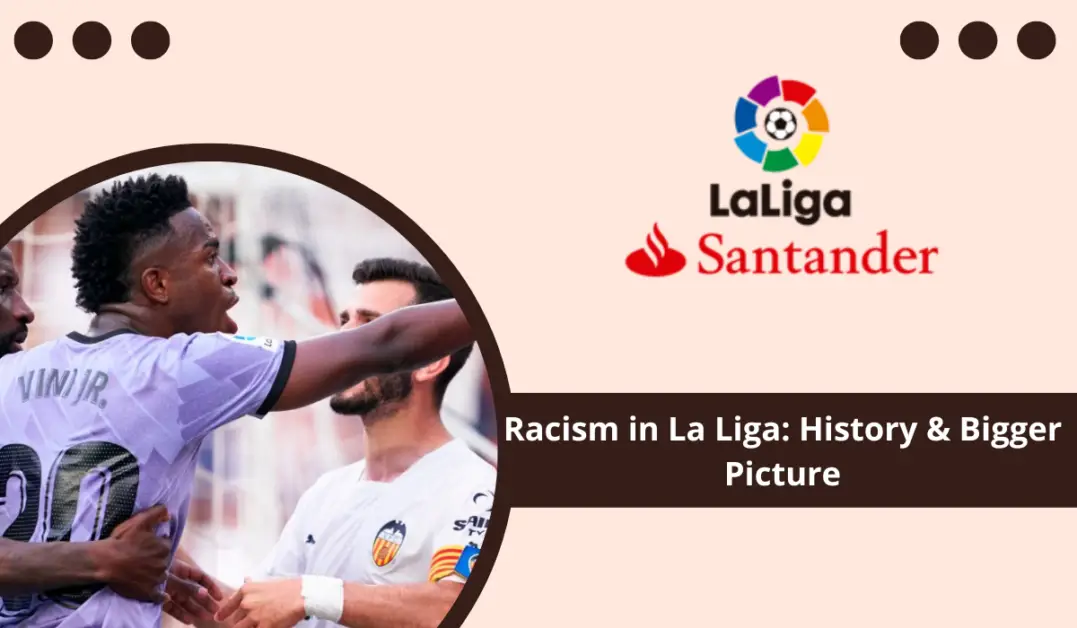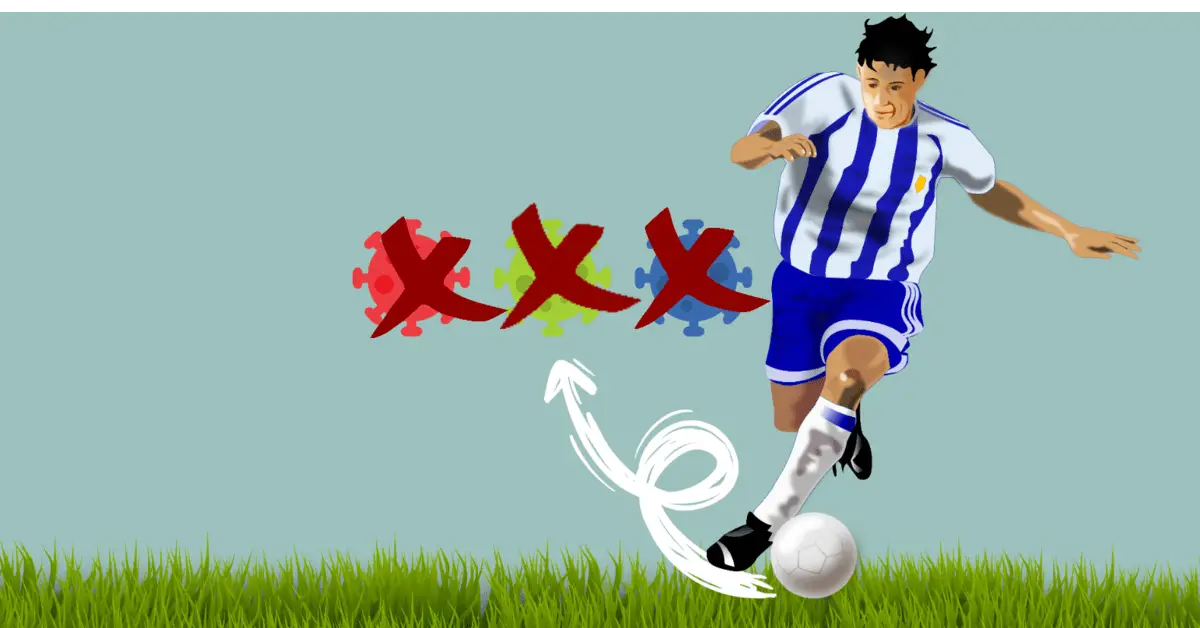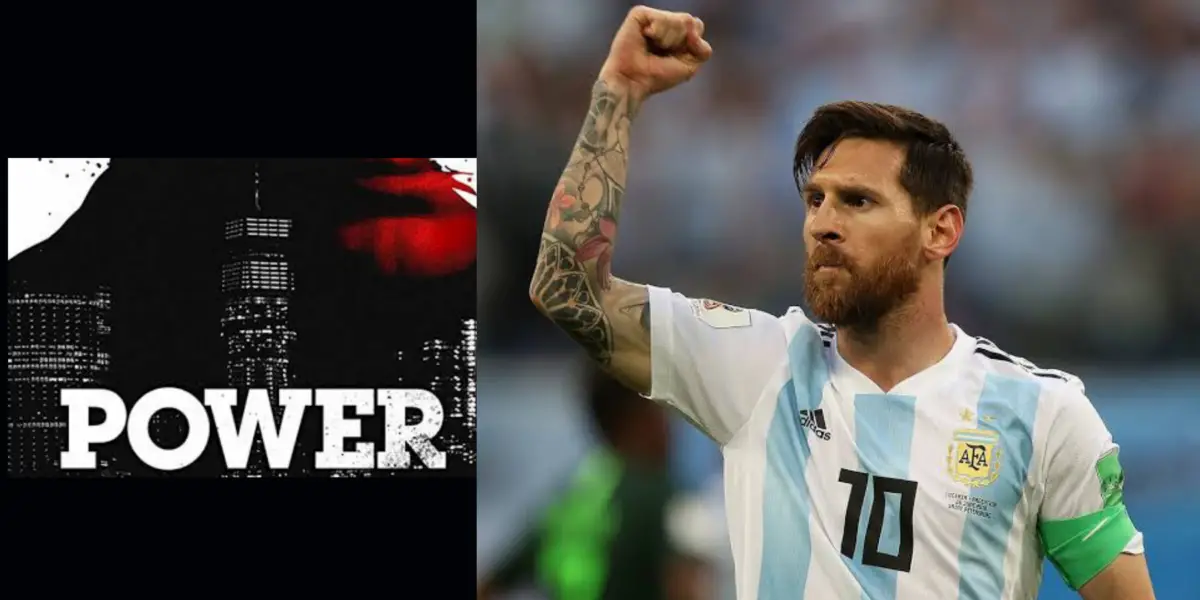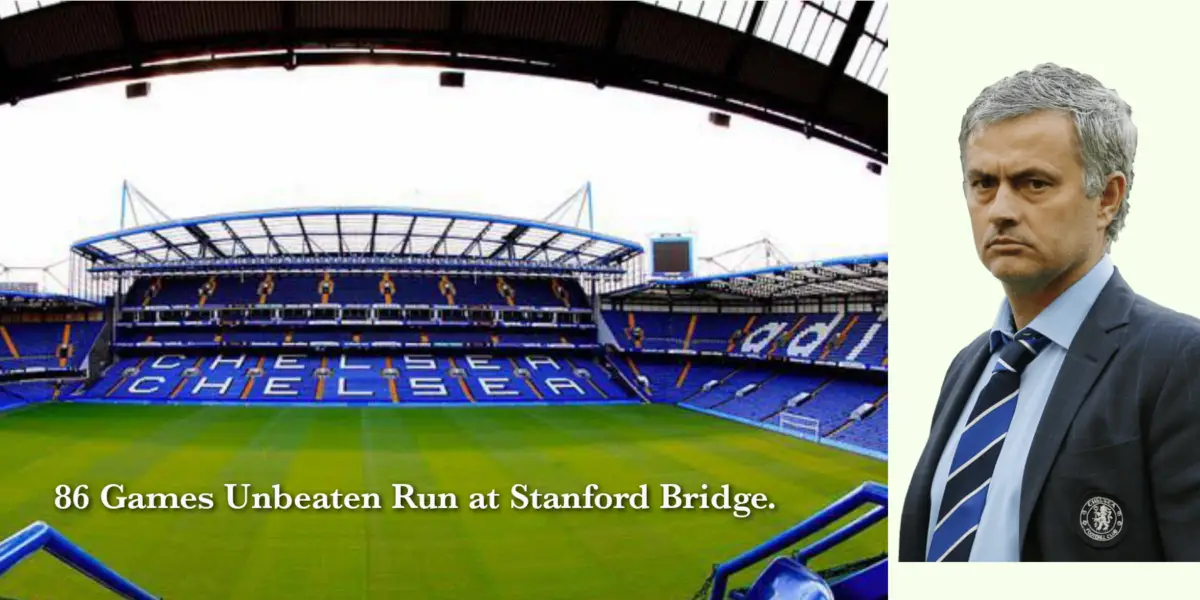In recent years, the issue of racism in football has come to the forefront, exposing the ugly underbelly of the sport. One such incident that has captured the attention of the football world occurred in La Liga, involving Real Madrid’s rising star, Vinicius Jr. The incident not only sparked outrage but also ignited a broader discussion on the persistent problem of racism in La Liga.
This blog post delves into the history of racism in Spanish football’s top division, examines the specific case of Vinicius Jr., and analyzes the larger implications and consequences of such incidents.
By shedding light on this pressing issue, we aim to contribute to the ongoing conversation about combating racism and fostering inclusivity in the world of football.
Historical Overview of Racism in La Liga
Racism has plagued Spanish football, including La Liga, for decades, tarnishing the sport’s reputation and undermining its core values of inclusivity and fair play. The roots of racism in Spanish football can be traced back to a time when society itself grappled with racial prejudices.
Notable incidents of racial abuse within La Liga have left an indelible mark on the sport. One such incident occurred in 2004 when Samuel Eto’o, then playing for Barcelona, faced racist chants and abuse from Real Zaragoza fans.
This incident brought the issue of racism to the forefront and sparked widespread condemnation. Similar instances involving players like Dani Alves, and Marcelo have underscored the pervasive nature of racism in Spanish football.
In response to these alarming incidents, La Liga and clubs have taken steps to address and combat racism. Various initiatives have been implemented, such as anti-racism campaigns, educational programs, and awareness-raising efforts.
La Liga’s “No Room for Racism” campaign aimed to raise awareness and promote tolerance, emphasizing the need for diversity and equality within football.
Moreover, clubs themselves have launched anti-racism campaigns, organizing workshops, and establishing protocols to handle instances of racial abuse. They have also collaborated with fan groups and organizations to promote inclusivity and foster a more welcoming environment.
However, despite these efforts, the effectiveness of measures taken by La Liga and clubs in eradicating racism remains a topic of debate. While strides have been made in raising awareness and initiating conversations, incidents of racial abuse continue to occur, suggesting that more comprehensive action is necessary.
The Vinicius Jr. Racism Incident in La Liga
During a heated La Liga match between Real Madrid and Valencia, a distressing incident unfolded, shedding light on the persistent issue of racism in Spanish football. Real Madrid’s young star, Vinicius Jr., became the target of racial abuse from Valencia supporters, sparking outrage and igniting a broader conversation about the need to eradicate racism from the sport.
Vinicius Jr. was subjected to racial abuse from Valencia supporters situated behind the goal. The incident occurred a few minutes before he was involved in a clash with Hugo Dora, which ultimately led to his dismissal from the match in second-half stoppage time. The Brazilian winger reacted angrily to the racial abuse directed towards him, further highlighting the emotional toll it took on him as a player.
The immediate reaction to the incident was one of condemnation from various stakeholders. Vinicius Jr., visibly upset and affected by the racial abuse, received support from his teammates, coaching staff, and the wider football community. Players and football personalities took to social media to express solidarity with Vinicius Jr. and denounce the racial abuse he endured.
However, La Liga’s initial response to the incident faced significant criticism. Many felt that the league’s reaction was inadequate in addressing the gravity of the situation.
The handling of the incident raised concerns about the effectiveness of the protocols in place to combat racism within the league. Critics argued that more decisive and robust action was required to send a strong message against racial abuse.
In response to the incident, the Royal Spanish Football Federation (RFEF) took action to address the matter. Vinicius Jr. was not suspended following his dismissal, allowing him to participate in future matches. Valencia, on the other hand, faced consequences for the actions of their supporters.
The south stand at the Mestalla Stadium, from where the racial abuse originated, was closed for a period of five games. Additionally, the club received a €45,000 fine and pledged to ban any supporters caught racially abusing the player for life.
Proposed Long-term Solutions and Future Outlook of Racism in La Liga
Addressing racism in La Liga requires a comprehensive and sustained effort to bring about meaningful change. While current measures have made progress, it is crucial to explore additional strategies to combat racism and create a more inclusive football environment.
Here are some proposed long-term solutions:
1. Education, Awareness, and Diversity Training
- Implement mandatory educational programs and workshops on diversity, equality, and cultural sensitivity for players, coaches, officials, and supporters.
- Foster a deeper understanding of different cultures and backgrounds to promote empathy and respect.
- Encourage clubs and academies to prioritize diversity and inclusivity in their recruitment and development programs.
2. Media and Public Figures
- Promote responsible reporting by the media, emphasizing the importance of avoiding racial stereotypes and biases.
- Highlight positive stories that showcase the diversity and challenge stereotypes within football.
- Encourage public figures, including players, coaches, and celebrities, to speak out against racism and actively promote tolerance and inclusivity.
3. Strict Penalties and Deterrents
- Consider imposing stricter penalties, such as significant point deductions, match bans, and substantial fines, for clubs and individuals found guilty of racial abuse.
- Ensure that punishments are proportionate and act as a deterrent to prevent recurrence.
- Empower referees and officials to take immediate action when racial abuse occurs during matches.
4. Collaborative Efforts
- Enhance collaboration between La Liga, clubs, fan groups, and anti-racism organizations to develop and implement anti-racism campaigns and initiatives.
- Foster dialogue and exchange best practices among stakeholders to share effective strategies for combating racism.
Final Thought
The issue of racism in La Liga remains a persistent and deeply concerning problem. The incident involving Vinicius Jr. and the subsequent actions taken by La Liga and the Royal Spanish Football Federation shed light on the urgency to address and eradicate racism from Spanish football’s top division.
While steps have been taken to combat racial abuse, it is evident that more needs to be done to create a truly inclusive and equal playing field.
The long-term solutions proposed, including education, awareness, strict penalties, and collaborative efforts, offer a path forward in the fight against racism in La Liga. It is crucial to prioritize diversity training, challenge stereotypes, and promote empathy and respect.
The role of media, public figures, and fan engagement is also pivotal in promoting tolerance and condemning racist behaviour.
As La Liga moves forward, it must remain dedicated to its commitment to eradicating racism from the sport.
By implementing and refining comprehensive strategies, fostering a culture of inclusivity, and holding individuals accountable, La Liga can set an example for other leagues and contribute to the broader goal of eradicating racism in football.
Ultimately, the goal is to create a future where players can compete without fear of racial abuse, where diversity is celebrated, and where football truly becomes a unifying force for all.
Only through collective action and a relentless pursuit of change can racism in La Liga be dismantled, paving the way for a more equitable and inclusive future in football.





